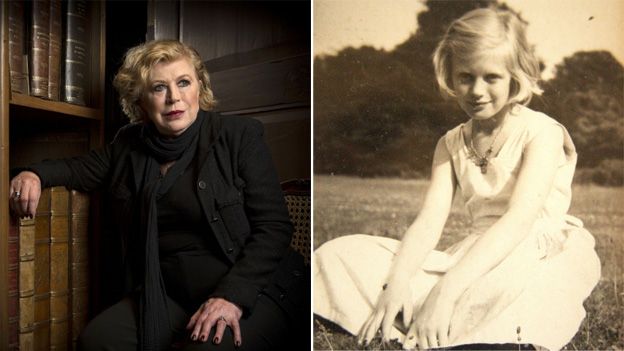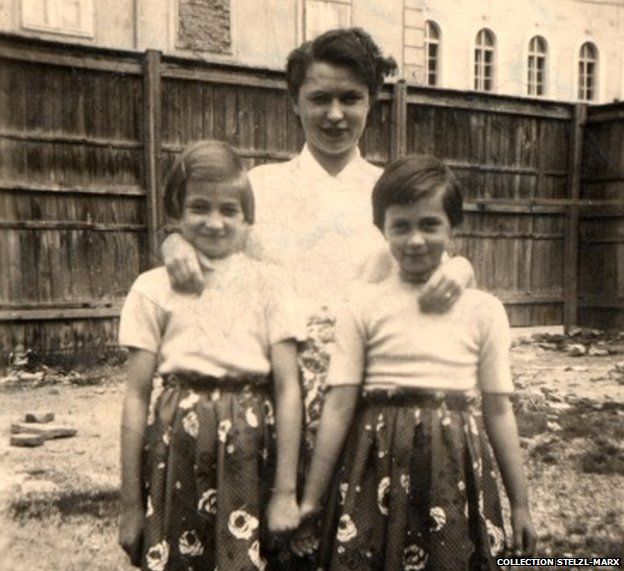
A new book looks at the lives of the children of Allied soldiers in Austria and Germany after WW2
When Christa Wais was born in September 1946, her Austrian mother had already lost contact with her father, a major in the Red Army.
Her parents had met at the theatre in the town of St Poelten, west of Vienna.
Her mother visited her father frequently in the eastern province of Burgenland where he was later stationed with his company.
But one day, when she was seven months pregnant, she turned up to find the company was gone.
Christa is one of 30,000 children thought to have been fathered by Allied soldiers in Austria in the decade after World War Two.
Meanwhile it is estimated that about 400,000 children in Germany were fathered by the occupying soldiers, who came from United States, Britain, France and the Soviet Union.

Germany and Austria were occupied by troops from the US, Britain, France and the Soviet Union after WW2
In German, these children were often described as "Besatzungskinder" - or "Children of the Occupation".
They were born as the result of love affairs, short flings, "survival prostitution" and rape, says historian Barbara Stelzl-Marx, the author and editor of a new book Besatzungskinder: The children of Allied Soldiers in Austria and Germany.
Many of the children - and their mothers - faced discrimination and social exclusion.
'Nasty remarks'
"It was very difficult," Christa Wais told me. "I don't have good feelings about my childhood. I was excluded everywhere. All the children had been told to avoid me.
"Later even my husband used to make nasty remarks about my background."
Ms Stelzl-Marx says there was a stigma surrounding the children of Allied soldiers; the fathers were often still regarded as the enemy.
"Many children were also illegitimate, which was a problem at that time," she said.
Children of Allied forces
Estimated figures
Source: Besatzungskinder: The children of Allied Soldiers in Austria and Germany
"There was a very negative picture of the Soviet soldiers. Nazi propaganda of the Slav Untermensch [subhuman] played a role.
"In the American zone, women were seen as having affairs because they wanted to have nice nylon stockings or chocolate."
'Something missing'
One prominent example of a "Besatzungskind" is British singer, Marianne Faithfull, says Ms Stelzl-Marx.

Marianne Faithfull, seen in 2013 and 1957, spoke about her family history in a BBC documentary in 2013
"She is the child of a British officer [Robert Glynn Faithfull] who was based in Vienna and who married her Viennese mother (Eva von Sacher-Masoch). They moved to Great Britain and there she gave birth to Marianne," she said.
Many other "Besatzungskinder" never met their fathers.
Gitta Rupp is one of three children of British fathers whose stories are included in Ms Stelzl-Marx's book.
She describes shouting in anger at a photo of her absent father, Paul Wade-Brown.

Gitta Rupp (front right) with her mother Paula and half-sister Pauli, by her mother, in 1955
But she also gives a warm description of her two half-sisters, whom she met in 2014. One, Anastasia Lewis, lives in London, while the other, Celia Wade-Brown, is the mayor of Wellington, New Zealand.
Christa Wais has yet not managed to trace her father and his family, who, she believes, came from Kiev.
But she is determined to keep searching.
"You shouldn't let anyone stop you looking for your roots, if you want to," she said. "Otherwise something will always be missing."